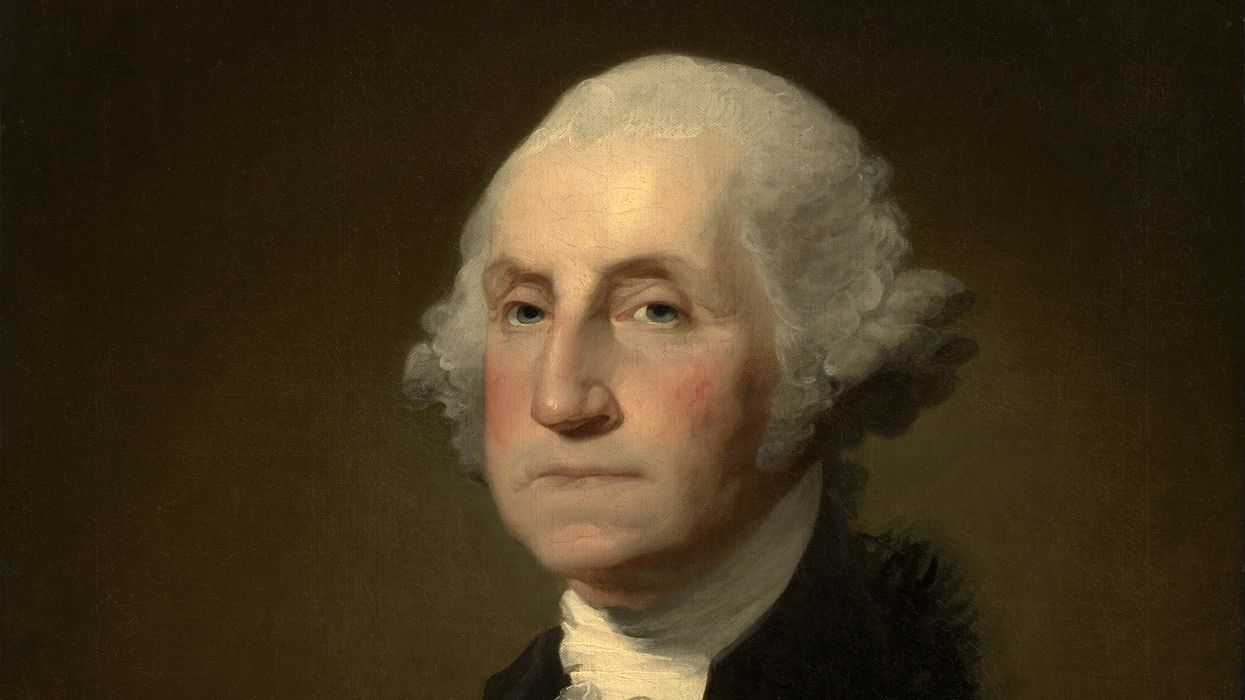Clancy is co-founder of Citizen Connect and board member of the Bridge Alliance Education Fund. Citizen Connect is an initiative of the Bridge Alliance Education Fund, which also operates The Fulcrum.
King George III reputedly said George Washington was the greatest man in the world for voluntarily relinquishing power. The indisputable fact is that Washington’s action remains remarkable in human history. And he actually did it at least two times.
On Dec. 23, 1783, Washington resigned his commission as commander of the Continental Army and returned to Mount Vernon. He did it again when he declined to run for a third term as president by publishing his Farewell Address on Sept. 19, 1796. In June 1799 Washington was yet again urged to run for president and declined.
His reasoning on each occasion was a complex mix of the personal and political, but the bedrock was an unwavering commitment to put the good of the nation above personal gain and the factions that would ultimately become our toxic party system.
The situation today is very different, but the core principles and concerns Washington raised in his Farewell Address remain completely valid. For example, his greatest fears about political parties have in many ways come to pass, writing that “they are likely, in the course of time and things, to become potent engines by which cunning, ambitious, and unprincipled men will be enabled to subvert the power of the people and to usurp for themselves the reins of government.”
For him emphasizing what we have in common as Americans was the real foundation of our strength and freedom. Washington called on us to indignantly frown upon “every attempt to alienate any portion of our country from the rest, or to enfeeble the sacred ties which now link together the various parts.”
I don’t belong to either political party and like so many Americans I yearn for better choices in the 2024 election. I’d actually like both Trump and Biden to step aside for new faces with fresh ideas, but any change to the core election equation seemed impossible until Thursday’s debate. I went to bed very frustrated and disappointed by what I heard from both candidates — Trump for the lies and relentless self-congratulation and Biden for bouts of incoherence and sounding like a shadow of himself. But I woke up with a sense of possibility — the chance (however slim) that the election sequel we’ve all dreaded doesn’t have to play out that way.
For the good of the nation I encourage both men to consider withdrawing from the election. Among a variety of reasons is the fact they are both elderly. Washington was 64 years old when he decided not to run for a third term and stated, “every day the increasing weight of years admonishes me more and more that the shade of retirement is as necessary to me as it will be welcome.”
Given their personalities I think it’s unlikely in either case and almost inconceivable when it comes to Trump. On the other hand, I could imagine Biden coming to such a difficult decision. Much of his campaign is premised on the existential threats to democracy and the rule of law. If that is his core motivation then making a great personal sacrifice becomes not just possible, but a moral imperative.
Both men have earned the right to run at the top of the ticket for their parties. I would just ask them to seriously consider the profound and historic opportunity they are presented with. One or both of them could make a decision that would put their love for America forever beyond dispute. It would not be an act of capitulation, but rather an act of profound courage and integrity. I’ll end with another quote from Washington’s heroic Farewell Address: “I have the consolation to believe that while choice and prudence invite me to quit the political scene, patriotism does not forbid it.”




















Trump & Hegseth gave Mark Kelly a huge 2028 gift